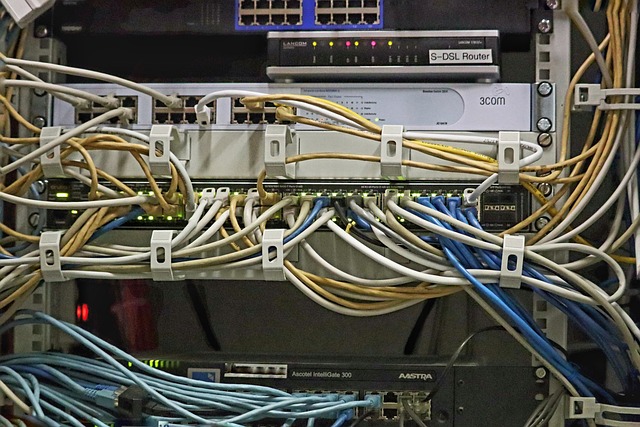# The Future of AI Technology: Innovations Shaping Industry and Everyday Experiences Ahead
Artificial Intelligence (AI) has evolved from a niche technological concept into a cornerstone of modern innovation, impacting various sectors and everyday life. As we look ahead, several key trends and innovations are poised to redefine how we interact with technology, work, and live. This article explores the future of AI technology, focusing on its transformative potential in industry, the ethical considerations accompanying its rise, and the enhancements it promises for daily experiences.
## Transformative Innovations in Industry
The landscape of industry is undergoing a seismic shift, largely driven by advancements in AI technology. Automation, powered by machine learning algorithms, is streamlining operations across sectors, from manufacturing to healthcare. Companies are increasingly adopting AI-driven solutions to enhance productivity, reduce costs, and improve decision-making processes. For instance, predictive analytics allows organizations to forecast demand, optimize supply chains, and manage inventory more effectively. By harnessing vast datasets, businesses can make informed choices that were previously unattainable.
In addition to automation, AI is revolutionizing the customer experience. Chatbots and virtual assistants have become commonplace in customer service, providing 24/7 support and personalized interactions. These AI tools analyze customer queries and respond in real-time, significantly reducing wait times and improving satisfaction rates. Furthermore, sentiment analysis technology enables businesses to gauge customer feedback and adjust their services accordingly, resulting in a more agile and responsive approach to consumer needs.
Moreover, the integration of AI in sectors such as finance is reshaping how transactions are conducted. Algorithms capable of analyzing market trends and consumer behavior can predict stock movements and identify investment opportunities. Robo-advisors, powered by AI, are democratizing financial advice, making it accessible to a broader audience. This shift not only enhances investment strategies but also promotes financial literacy among individuals who may have previously lacked access to traditional financial services.
## Ethical Considerations in AI Development
As AI technology continues to advance, ethical considerations are becoming increasingly prominent. The rapid proliferation of AI raises questions about privacy, bias, and accountability. Concerns surrounding data privacy are paramount, particularly as AI systems rely on vast amounts of personal information to function effectively. Striking a balance between leveraging data for innovation and safeguarding individual privacy is a challenge that policymakers and technologists must address.
Bias in AI algorithms is another critical issue that warrants attention. Historical data used to train AI models can inadvertently perpetuate existing biases, leading to unfair outcomes in areas such as hiring, lending, and law enforcement. Ensuring that AI systems are transparent and equitable is essential for fostering trust and acceptance among users. Initiatives aimed at developing ethical AI frameworks are gaining traction, emphasizing the importance of diverse datasets and inclusive design practices in AI development.
Accountability in AI decision-making is also a pressing concern. As AI systems become more autonomous, determining responsibility for their actions becomes increasingly complex. Establishing clear guidelines and regulations governing AI use is essential to mitigate potential risks. Collaborative efforts between governments, tech companies, and civil society are crucial in shaping an ethical AI landscape that prioritizes human welfare and societal benefit.
## Enhancing Everyday Experiences with AI
Beyond industrial applications, AI technology is set to enhance everyday experiences in profound ways. One of the most significant developments is the rise of smart homes, where interconnected devices learn user preferences and automate daily tasks. From smart thermostats that optimize energy consumption to voice-activated assistants that manage schedules, AI is transforming how individuals interact with their living spaces. This seamless integration of technology into daily life not only increases convenience but also promotes sustainability by optimizing resource usage.
In the realm of healthcare, AI innovations are revolutionizing patient care and diagnostics. Telemedicine, augmented by AI, allows for remote consultations and personalized treatment plans. Machine learning algorithms can analyze medical data to identify patterns and predict health outcomes, enabling proactive interventions. As a result, healthcare providers can offer more precise and tailored care, ultimately improving patient outcomes and reducing costs.
Entertainment is another area where AI is making a significant impact. Streaming services utilize AI algorithms to analyze viewer preferences and recommend content, creating personalized viewing experiences. Additionally, AI-generated content, including music and art, is gaining popularity, challenging traditional notions of creativity. As AI continues to evolve, the boundaries between human and machine-generated content will blur, leading to new forms of artistic expression.
## Conclusion: Embracing the Future of AI
The future of AI technology is bright, with innovations poised to reshape industries and enhance everyday experiences. As organizations and individuals embrace these advancements, it is crucial to remain vigilant about the ethical implications and potential challenges that arise. By prioritizing responsible AI development and fostering collaboration among stakeholders, society can harness the transformative power of AI while ensuring that it serves the greater good.
In summary, AI technology is not merely a tool for efficiency; it is a catalyst for change that has the potential to redefine how we live and work. As we navigate this dynamic landscape, embracing innovation while addressing ethical considerations will be key to unlocking the full potential of AI in the years to come. The journey ahead promises to be both exciting and challenging, as we collectively shape a future where AI enhances our lives in ways we have yet to imagine.











